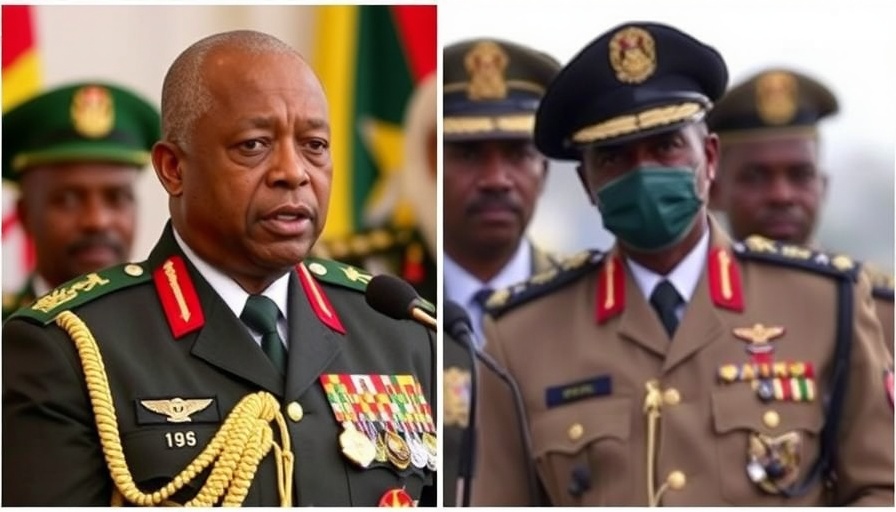
Understanding the Power Dynamics in Zimbabwe
The recent removal of Lt-Gen Anelem Sanyatwe as army commander by President Emmerson Mnangagwa underscores a fierce power struggle in Zimbabwe’s political landscape. The appointment of the military chief to the position of sports minister sends a signal of Mnangagwa's intent to consolidate power amidst internal factional tensions within the ruling Zanu-PF party. This move comes at a time when calls for an uprising from a faction loyal to Vice President Constantino Chiwenga are amplifying the already volatile atmosphere.
Historical Context: The Legacy of Military Influence
Zimbabwe's political history is steeped in military influence, particularly since the ousting of long-time ruler Robert Mugabe. Chiwenga, who orchestrated the coup that brought Mnangagwa to power, continues to hold sway within military circles. The background of military involvement in governance highlights the precariousness of political stability in Zimbabwe. In a nation where the military has intervened in the past to set political outcomes, the recent shifts may suggest a looming change.
The Stakes of Governance and Economic Implications
As this internal conflict rises, so do concerns about its implications for Zimbabwe's economy. Mnangagwa’s administration has faced international scrutiny regarding governance and corruption issues. The unrest may divert attention and resources away from economic reforms needed to revitalize the struggling economy, impacting investment sentiment in both local and international markets.
Current Events and Global Reactions
The international community is closely monitoring these developments, particularly given Zimbabwe's strategic position in regional politics and trade. Engagement from global powers and organizations such as the United Nations may influence the outcomes of this power struggle. The future of relations with partners like the African Union and implications for Zimbabwe’s role within BRICS are also key considerations for global stakeholders.
Future Predictions and the Path Ahead
With the Zanu-PF party set to hold its elective congress in 2027, the question remains: Can Mnangagwa fend off challenges from within and maintain his position until then? Internal dynamics suggest growing friction, and the success of his administration hinges on addressing factional conflicts while ensuring economic stability. Investors and policymakers should brace for a period of uncertainty as the landscape evolves.
Taking Action: What Stakeholders Should Consider
As the political situation unfolds, stakeholders, especially business leaders and investors, must remain vigilant. Evaluating how these power shifts can impact governance and economic policies is crucial. Engaging with news and updates regarding African politics and governance can provide the necessary insight for informed decision-making.
Ultimately, understanding the intricate relationship between politics and economic performance will be vital as Zimbabwe navigates this tumultuous period.
 Add Row
Add Row  Add
Add 


Write A Comment